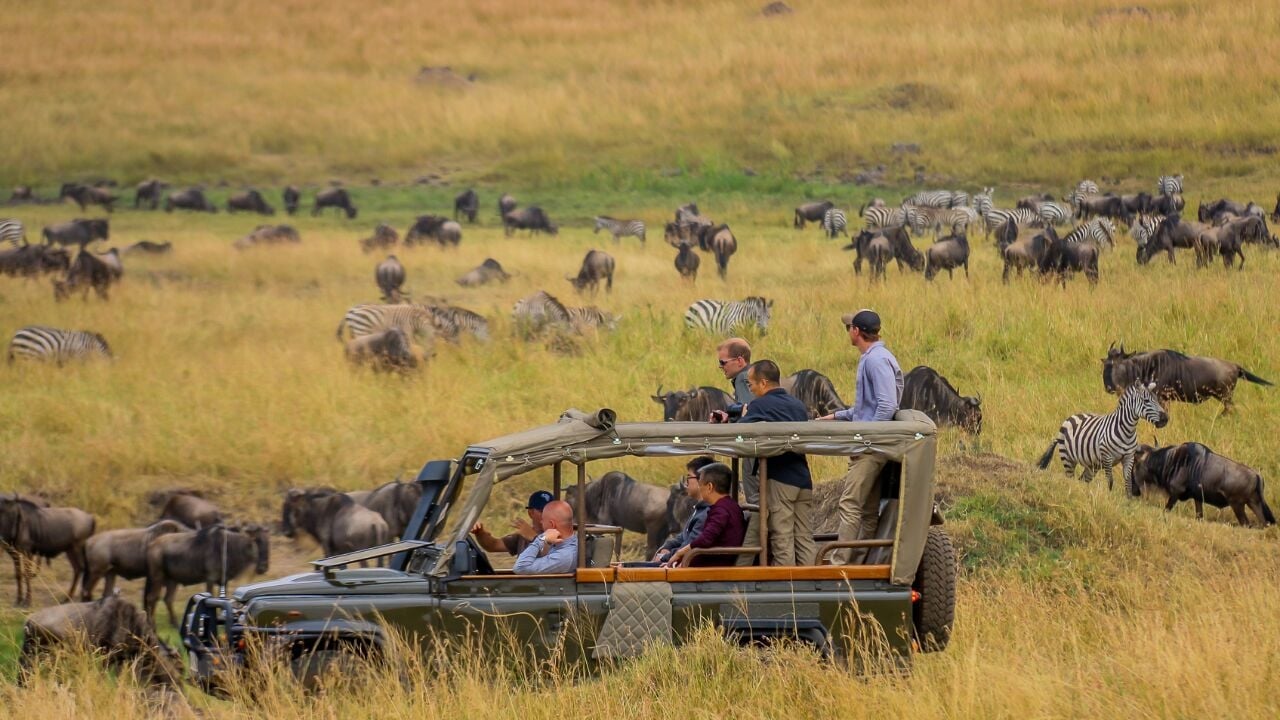Kenya has been crowned the world’s friendliest country in the 2025 Condé Nast Traveller Readers’ Choice Awards, earning an outstanding score of 98.46.
In its report, Condé Nast Traveller praised Kenyans for their kindness and openness, describing them as people who make visitors feel instantly at home.
The publication celebrated Kenya’s iconic safaris, where travellers encounter the Big Five under the guidance of experienced tour guides who are known for their reassuring presence.
It also highlighted the country’s capital, Nairobi, for its lively nightlife and dynamic social scene, as well as the serene coastal region, famed for five-star resorts along the Coast.
Kenya topped the global list ahead of Barbados, Mexico, Bhutan, Cambodia, Vietnam, Mauritius, Chile, Seychelles, and Thailand.
Read More
In a statement on Tuesday, October 14, Tourism Cabinet Secretary Rebecca Miano hailed the award as a major milestone for the nation’s tourism sector.
She also described the milestone as a reflection of Kenya’s people-driven approach to hospitality.
"We are immensely proud to share that Condé Nast Traveller readers have voted Kenya the World's Friendliest Country.
"This significant recognition is a powerful testament to the genuine warmth, exceptional hospitality, and welcoming nature of the Kenyan people, from our expert safari guides to our coastal communities and our hospitality industry whose larger population are our youths," she said.
Miano further applauded citizens across the country for embodying the spirit of 'Magical Kenya.'
"This recognition belongs to every single Kenyan whose warmth and spirit make our destination truly magical. The heart of Magical Kenya is our people, and thank you to all Kenyans for representing our nation so beautifully," she added.

This comes months after the Maasai Mara National Reserve earned global recognition after being officially inscribed into the World Book of Records for hosting the largest annual terrestrial wildlife migration on Earth.
In a letter addressed to Narok Governor Patrick Ole Ntutu on Thursday, July 10, World Book of Records President Santosh Shukla confirmed the prestigious listing under the title, World’s Greatest Annual Terrestrial Wildlife Migration.
"We are delighted to inform you that the Maasai Mara National Reserve has been officially included in World Book of Records under the distinguished title: ‘World’s Greatest Annual Terrestrial Wildlife Migration’ for hosting the largest and most dramatic annual land animal migration on Earth, involving over 1.5 million wildebeests, zebras, and antelopes traversing the Serengeti-Mara ecosystem," the letter read.
Shukla noted that the recognition serves as an international nod to Kenya’s commitment to biodiversity and sustainable tourism.
"This remarkable recognition honors the ecological significance of the Maasai Mara and highlights Kenya’s exceptional contribution to wildlife conservation, global biodiversity, and sustainable eco-tourism," the letter added.
Reacting to the news, Ntuntu credited the recognition to efforts his administration has undertaken since he assumed office.
"Upon assuming office two and a half years ago, my administration launched an ambitious campaign to restructure and revitalize the Maasai Mara National Reserve, with the objective of preserving and enhancing this invaluable natural asset," he said.
Ntuntu outlined various reforms aimed at restoring the reserve’s ecological health and global stature, including ranger support and smart conservation tools.
"Some of the interventions implemented include the enactment of the Maasai Mara National Reserve Management Plans, equipping our rangers, constructing roads within the Reserve, and introducing tech-based conservation initiatives, among others," he added.
Ntuntu hailed the certification as a proud moment not only for Narok County but for the entire country.
"Today, we are deeply honoured to receive this prestigious recognition from the World Book of Records, UK, officially certifying the Maasai Mara National Reserve as the home of the world’s greatest annual terrestrial wildlife migration," he further said.



-1771396038.png)
-1771391252.png)

